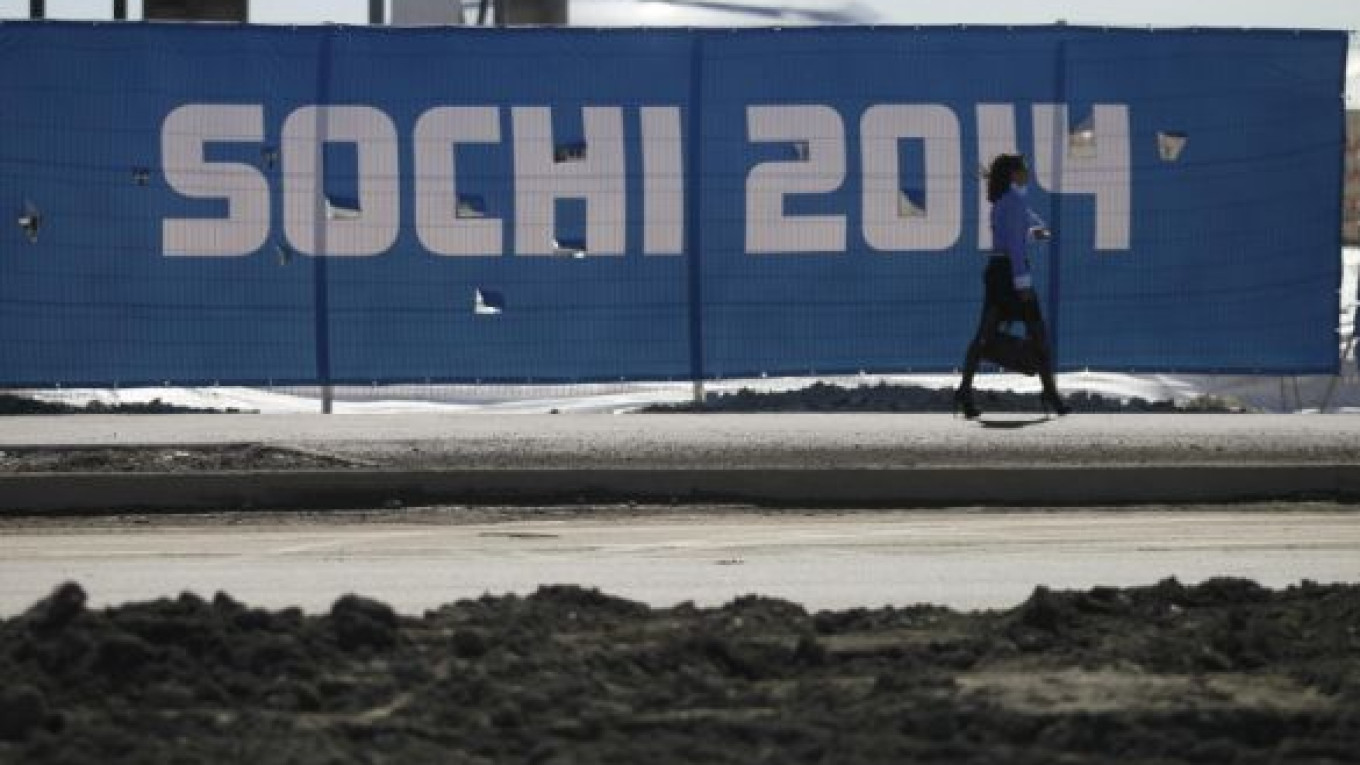A documentary about extortion and threats surrounding the construction of the Sochi Olympic Village is slated to premiere in Moscow next month, despite what its producer said were attempts to bribe her into canceling a screening at a European film festival this week.
The film, titled "Putin's Games," features Sochi residents who talk about the environmental damage and chaos brought on their city by the preparations for the 2014 Winter Olympic Games, and a building contractor who describes corruption and threats that forced him to flee Russia and seek asylum in Britain.
The contractor, Valery Morozov, said that kickbacks demanded by government officials soared from 3 percent when construction began in 2008 to 50 percent in later years, and were followed by threats against those who were reluctant to pay up, the Telegraph reported.
"We received explicit threats: 'You'll be soaked with blood; drowned in blood,'" Morozov said. "It was very straightforward. We know the history. Russia generally does not care much for human life."
Morozov also described how kickbacks were paid to the Kremlin.
"It works like this: the money is brought to the Presidential Administration Department," he said. "I go to the fifth floor, pass through security without being screened, and leave the money.
Film producer Simone Baumann said she had been offered about $973,000 — twice the film's production costs ?€” to prevent its showing at the International Documentary Film Festival in Amsterdam, where it opened on Sunday. She refused a third meeting with a person she knew to have close contacts with Russian officials.
"In a society where they think they can buy anything ?€” and usually can ?€” if you ask for a price, you are already a buyer," she said. "You must never ask the price. I simply told him that I was not interested and walked away."
Directed by Russian-born Israeli Alexander Gentelev, the film also includes comments by Sochi residents complaining about construction mix-ups that sent sewage running from their apartment taps instead of water, trees and flower beds razed from city streets and replaced with slabs of concrete, and landfills piling up around the city, turning the resort into "a giant dump."
The film also features opposition politician Boris Nemtsov, a native of Sochi, ridiculing the choice of the subtropical city as the site of the Winter Olympics, the Independent reported.
"You'd have to spend a long time searching the map of this huge country to find someplace with no snow," Nemtsov said. "Putin found it."
Baumann, who spent two years researching and filming "Putin's Games" said the production crew "had permission for all the filming we did in Russia, in Sochi and Moscow." But the International Olympic Committee was so displeased with the news about the film that it banned the use of the word "Olympic" in the title or any archived Olympic footage in the film, the Telegraph reported.
The criticism in the film is balanced with comments from Anatoly Pakhomov, the mayor of Sochi and a supporter of Putin, the producers said.
"Putin's Games" will make its Moscow premiere on Dec. 6 at the ArtDoc Film Festival.
A Message from The Moscow Times:
Dear readers,
We are facing unprecedented challenges. Russia's Prosecutor General's Office has designated The Moscow Times as an "undesirable" organization, criminalizing our work and putting our staff at risk of prosecution. This follows our earlier unjust labeling as a "foreign agent."
These actions are direct attempts to silence independent journalism in Russia. The authorities claim our work "discredits the decisions of the Russian leadership." We see things differently: we strive to provide accurate, unbiased reporting on Russia.
We, the journalists of The Moscow Times, refuse to be silenced. But to continue our work, we need your help.
Your support, no matter how small, makes a world of difference. If you can, please support us monthly starting from just $2. It's quick to set up, and every contribution makes a significant impact.
By supporting The Moscow Times, you're defending open, independent journalism in the face of repression. Thank you for standing with us.
Remind me later.


